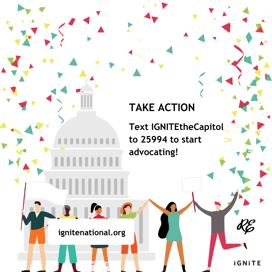Op-ed: If not us, then who? If not now, then when?
.png)
“If not us, then who? If not now, then when?”
These are the words of a man that fought, bled and organized tirelessly for marginalized groups to have the right to vote.
.png?width=403&name=bridge3%20(1).png)
We know and recognize this man, hero, and freedom fighter as John Lewis. He left behind a blueprint for us all to follow to continue the work of all things voting rights. The John Lewis Voting Rights Advancement Act is a way to continue that work.
Let’s talk voter suppression. This is one of the issues that John Lewis fought and worked so tirelessly on.
What exactly is voter suppression and how is it relevant to Georgia specifically?
Voter suppression is a strategy used to influence the outcome of an election by discouraging or preventing specific groups of people from voting.
Georgia has a peculiar relationship with voter suppression. Voting rights groups in the state, have filed a lawsuit challenging the wrongful purge of nearly 200,000 voters from the voting rolls over the last two years. We’ve seen an increase in marginalized groups participating in elections. This system is designed to keep certain groups from voting in order to retain power.
Georgia rested on the minds of many people across the country as its Senate runoff elected stunned cities, states, and the entire nation. After a long-standing Republican Senate controlling, Georgia shocked us all with its flip, electing Rev. Raphael Warnock, making him history as he becomes Georgia’s first Black senator and the first Black Democrat to represent not only Georgia, but a southern state in the Senate. This a huge win given the voter suppression and tactical attempts used to steal the election.
The John Lewis Voting Rights Advancement Act will stop suppression practices and protect all groups and their right to vote on a federal level.
This Bill does the following:
- Increases transparency by requiring reasonable public notice for voting changes; • Allows the Attorney General authority to request federal observers be present anywhere in the country where there is a serious threat of racial discrimination in voting
- The process for reviewing changes in voting is limited to a set of measures, such as the institution of a voter ID law or the reduction of multilingual voting materials – practices that have historically been found to have the greatest discriminatory impact.
- States that have repeated and persistent violations will be covered for a period of 10 years, but if they establish a clean record moving forward, they can come out of coverage.
- Increases accessibility and protections for Native American and Alaska Native voter
-Allows a federal court to order states or jurisdictions to be covered for results-based violations, where the effect of a particular voting measure (including voter ID laws) is to lead to racial discrimination in voting and to deny citizens their right to vote
- Revises and tailors the preliminary injunction standard for voting rights actions to recognize that there will be cases where there is a need for immediate preliminary relief.
“If not us, then who? If not now, then when?”
Take Action
IGNITE is in full support of the John Lewis Voting Rights Advancement Act. We believe that all people deserve the right to vote, and we firmly stand against any attempt to suppress the power of the people. Ready to take action to protect voting rights? Contact your senators today!

